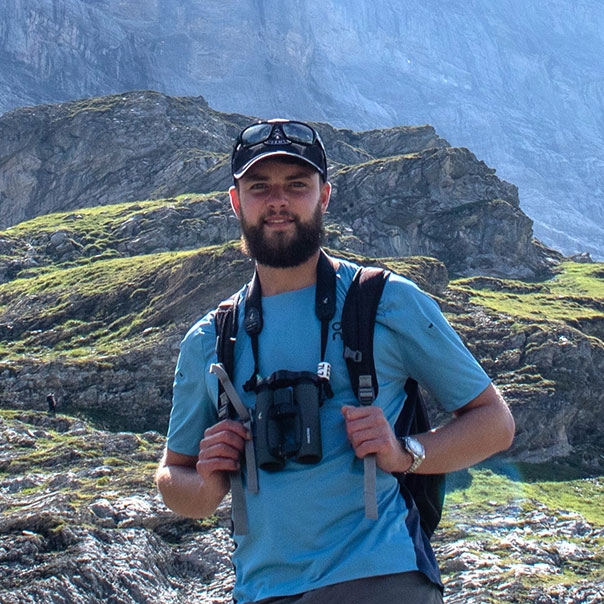Dan Gornall
Research Officer, Wetland Bioscience
Contact details

About me
My early interest in nature was quickly channelled into a passion for birds, taking up birding as a hobby and subsequently starting to train to ring birds in my mid-teens. I completed my undergraduate degree in Wildlife Biology at Manchester Metropolitan University, with a placement year at Caerlaverock – my first real involvement with WWT.
Fieldwork and research have long been a central focus of mine, and I have been involved in a wide range of projects throughout my academic years and beyond. Fieldwork has taken me around world where I have studied a variety of bird species in the UK, Iceland, China, Ethiopia and Canada.
I have previously worked as RSPB Assistant Warden on the Dee Estuary, before moving to Fair Isle (Britain’s most remote inhabited island!) to work at the Bird Observatory for two years, studying breeding seabirds and bird migration through the island. I (re-)joined WWT as a Research Officer 2022.
My role
As a Research Officer at WWT, I work predominantly on species recovery projects within the Wetlands Bioscience team. My role is often field-based, with key responsibilities including delivering fieldwork for the Severn & Avon Vale Curlew project during the breeding season. I have also contributed to a wide range of other programmes such as Black-tailed Godwit release site assessments, Functionally Linked Land waterbird GPS tracking, Spoon-billed Sandpiper fieldwork and Dartmoor Curlew monitoring. In addition, I support WWT’s bird capture, ringing, and GPS tracking work. Contributing thinking to the development of future species recovery initiatives and sharing our evidence-based research through publications, reports, and conferences is also central to my role.
Experience and interests
- Extensive ornithological fieldwork experience
- Extensive bird ringing experience; hold highest BTO permit (S)
- Involved in tracking work & fitted GPS devices to various bird species
- Great knowledge of general bird ecology, behaviour, ID & monitoring techniques
Publications
- Mahamued, B., Donald, P., Collar, N., Marsden, S., Ndang’ang’a, P., Wondafrash, M., Adebe, Y. D., Bennett, J., Wotton, S. R., Gornall, D., Lloyd, H. 2022. Rangeland loss and population decline of the critically endangered Liben Lark Heteromirafra archeri in southern Ethiopia. Bird Conservation International, 32(1), 64-77. https://doi.org/10.1017/S0959270920000696
- Barton, M.G., Conway, G.J., Henderson, I.G., Baddams, J., Balchin, C.S., Brides, K., Butcher, N., Cameron, T.C., Davis, T., Eyre, J. and Foster, R., 2025. Meta‐analysis of predator identity in nest‐camera studies in the British Islands. Ibis. https://doi.org/10.1111/ibi.13436